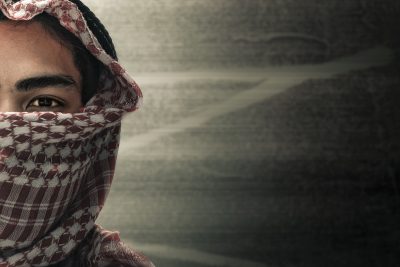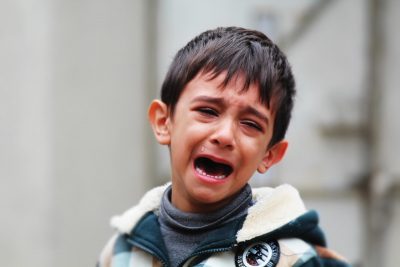
by: Cheryl Hauer, Vice President
 Some of the greatest military and political minds the world has known have graced the pages of Israel’s modern history. Idealists all, they believed in an Israel not yet realized, a nation based on biblical principles, morally superior and committed to tikun olam (repairing the world, a concept expressed as the obligation or responsibility of every Jewish person to work toward a better world for all of mankind). Israel, they knew, would become a light to the nations, a living example of the high ideals of peace, justice and harmony that fill the pages of Torah (Gen.–Deut.). Yet their idealism was held in constant tension with stark realism that could not ignore the dark side of the future Israel faced.
Some of the greatest military and political minds the world has known have graced the pages of Israel’s modern history. Idealists all, they believed in an Israel not yet realized, a nation based on biblical principles, morally superior and committed to tikun olam (repairing the world, a concept expressed as the obligation or responsibility of every Jewish person to work toward a better world for all of mankind). Israel, they knew, would become a light to the nations, a living example of the high ideals of peace, justice and harmony that fill the pages of Torah (Gen.–Deut.). Yet their idealism was held in constant tension with stark realism that could not ignore the dark side of the future Israel faced.
Military hero and statesman Moshe Dayan believed in the vision of a strong, vibrant Israel, secure in its calling as a safe and prosperous homeland for the Jewish people and a nation built on democratic principles. Yet he is quoted as expressing his personal fear in seeing the “hatred that consumes the lives of hundreds of thousands of Arabs who wait for the moments when their hands will be able to spill Jewish blood.”
David Ben-Gurion, the first prime minister of Israel and a man whose guidebook as a leader and a nation builder was the Bible, was asked in an interview in 1968 if he ever feared for the future of his country. “I always fear for it,” he replied. Israel could win lots of wars, the prime minister stated, and the Arabs could lose lots of wars. Israel would, however, not be able to stand one defeat. One lost war, he feared, would be the end of the nation. Until his death in 1973, he remained a passionate believer in Israel’s glorious future—yet he held out little hope for peace.
Golda Meir, the first female prime minister of Israel, led the nation from 1969 to 1974. “Peace will come,” she stated, “but only when the Arabs love their children more than they hate us.”
Even Shimon Peres, prime minister and statesman who dedicated his life to the vision of a secure, vibrant and peaceful Israel, stated on more than one occasion that Israel would “make peace like there is no terror…” However, he qualified the statement by adding, “…and fight terror like there is no peace.”
It is clear that these leaders firmly believed that Israel would one day become what it was intended to be: a leader and not a follower, the head and not the tail, a lender and not a borrower, a recipient of blessings in every way that would willingly be shared with the rest of the world (Deut. 28:12–13). They also knew there would be a high price to pay.
Although virtually every aspect of life in Israel has been impacted by terror, there are two areas that have changed the face of the nation. In economic terms, the posture of Israel’s enemies has certainly taken a tremendous toll. Faced with the constant reality of terror and threat of war, a strong defense establishment is an existential necessity for Israel, requiring that a large portion of the state budget be allocated to defense. However, an argument rages among Israel’s leaders as to how much is too much. Some believe that too large a portion of the GDP spent on defense threatens the economy, while others argue that too small an amount leaves Israel with the inability to provide appropriate solutions to security challenges. Currently, Israel’s military spending as a percentage of their GDP is 5.8% with an eventual goal of 6%—compared to a world average of 2.2%. Consider that by total area, tiny Israel sits at 146th out of the 196 nations of the world and ranks 99th by population. Yet its defense spending sits at 15th out of the world’s top 20.
 The most devastating toll of terror is seen in the loss of life. A report released at the end of 2018 by the Family Commemoration Division at the Ministry of Defense revealed that 23,645 people have been killed by terror in Israel since 1860, the year considered the birth of Zionism. At the time the report was released, there were 8,929 parents living in Israel who had lost children in the Israel Defense Forces (IDF) or security forces. There were also 4,849 widows or widowers raising a combined total of thousands of children without their spouses.
The most devastating toll of terror is seen in the loss of life. A report released at the end of 2018 by the Family Commemoration Division at the Ministry of Defense revealed that 23,645 people have been killed by terror in Israel since 1860, the year considered the birth of Zionism. At the time the report was released, there were 8,929 parents living in Israel who had lost children in the Israel Defense Forces (IDF) or security forces. There were also 4,849 widows or widowers raising a combined total of thousands of children without their spouses.
At the same time, the National Insurance Institute released a similar report referring only to civilians. Since 1860, there have been nearly 4,000 non-military deaths from terror, leaving 3,175 children without a parent in the State of Israel. One hundred and fourteen of those children actually lost both their parents. There are currently 822 civilian widows in the country and 926 parents grieving the loss of a child or children.
Israel is a very small country, and each of these deaths affected hundreds—if not thousands—of people. It is virtually impossible to find an Israeli who has not attended too many funerals and mourned the loss of a loved one, a friend, a colleague, a fellow soldier or a friend of a friend.
The greater toll, however, is found in the generations that will never be. Judaism teaches that to save one life is to save the universe because each individual has the potential for innumerable offspring. The reverse can be said for every life lost. A website called the Descendants Calculator helps to determine how many offspring are likely for a person when the correct information is provided. If we were to consider four generations at 40 years per generation since 1860 at an average number of four children per family, the algorithm tells us that each family included in that 23,645 people would by now have approximately 340 offspring. Even taking into consideration the number of lives lost during the Holocaust, Israel’s population today would have been millions more than it is. More doctors, more scientists, more researches, more Bible scholars, more innovation in technology, food production, security and space travel—more blessings shared with the nations. The toll of terror that Israel absorbs is almost impossible to quantify—and so is the loss to the rest of the world.
All logos and trademarks in this site are property of their respective owner. All other materials are property of Bridges for Peace. Copyright © 2025.
Website Site Design by J-Town Internet Services Ltd. - Based in Jerusalem and Serving the World.